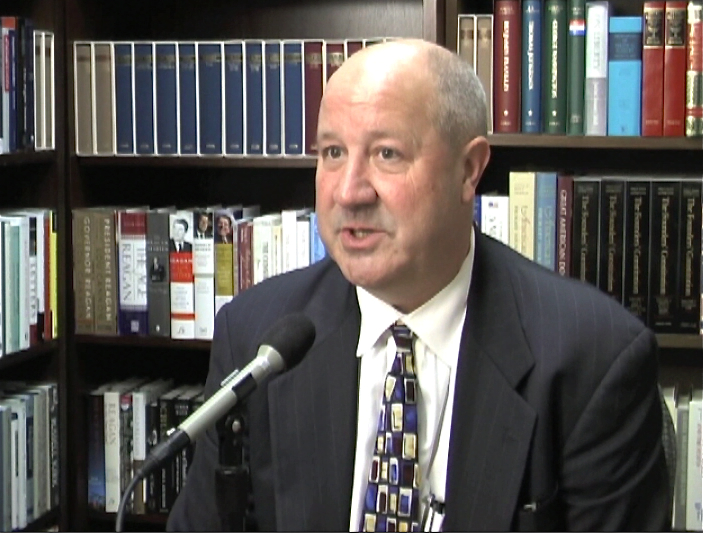 Those of you who enjoyed Steven Hayward‘s column on former President Ronald Reagan in today’s News & Observer might appreciate this transcript of a Carolina Journal Radio/CarolinaJournal.tv conversation with Hayward tied to the publication of the second volume of Hayward’s political biography of the 40th president.
Those of you who enjoyed Steven Hayward‘s column on former President Ronald Reagan in today’s News & Observer might appreciate this transcript of a Carolina Journal Radio/CarolinaJournal.tv conversation with Hayward tied to the publication of the second volume of Hayward’s political biography of the 40th president.
Kokai: Why does Reagan have so much of an influence over our politics and public policy?
Hayward: Well, I think he is just a large figure in every sense of the word. His personality was large, but especially his politics, and I think he ranks with Franklin Roosevelt as the other dominant, pivotal president of the 20th century. I mean, he changed our course in a number of ways, but over the last 20 years, since he left office, … a bit of confusion has arisen about him. Liberals start to like part of him, while disliking other parts, and conservatives sometimes want to remember the good parts and forget some of the more difficult parts of the Reagan administration, and have sort of lost their focus a little bit on him. So I wanted to write a long book that told the whole story, and not just parts of it, and directed our attention to some of the frustrations that are still frustrating to conservatives today. You know, how do we control big government? How do we restore the Constitution within its proper bounds? Those are questions Reagan wrestled with, with some successes, and with some failures, and with some ties.
Kokai: You called it a long book, and for those who haven’t seen it — actually, the two books together, if I count correctly, there’s about 1,500 pages on Ronald Reagan. What are some of the main things you learned during the course of your research that most people don’t really know about Reagan?
Hayward: Right. Well, I would say about both candidate Reagan in the ’70s and then President Reagan is part of his art was concealing how hard he worked, and how much he knew, and he did that for some odd reasons. One, he wanted Americans to have the feeling that the president had things under control, so one of his favorite jokes was, “You know, they say hard work never killed anyone, but I say, why take chances?” Turned out he worked really hard, often until midnight, reading documents, marking up speeches, writing his own speeches, and lots and lots of letters.
He was also a very disciplined person, in his practice, so people would say, “Gosh, Reagan doesn’t say anything in meetings.” And sometimes he did say a lot in meetings. That wasn’t universally true. But one of the reasons he didn’t say things in many meetings is that he didn’t want to read what he’d said in a newspaper the next day, because he hated leaks and knew that if he said anything important in a meeting, it would be in the paper the next day. That takes some real discipline on the part of a president to understand that.
So, you know, I think people who like to point to Reagan as their example ought to study really hard how he prepared for his speeches, the structure of his speeches — they’re often shorter than a lot of political speeches that people make today, like, you know, Bill Clinton, who can rival Fidel Castro sometimes, right? You know, there’s that — Reagan made it look so easy that I think we think that it should come easy to the rest of us, and it really doesn’t. He had to work very hard to be as good as he was.
Hayward also discussed Reagan’s legacy in a speech to the John Locke Foundation’s Shaftesbury Society in October 2009.


